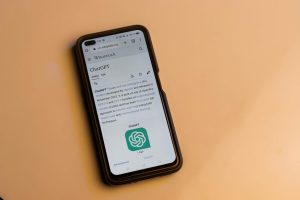Personalized Progression: Student Agency in Competency-Based Learning
In traditional education, students are often passive recipients of information and knowledge. They are expected to absorb and regurgitate information without fully understanding its relevance or practical application. However, with the rise of competency-based learning, there has been a shift towards personalized learning and student agency. Personalized progression and student agency in competency-based learning prioritize the needs, strengths, and interests of individual students, empowering them to take ownership of their education and achieve authentic mastery of skills and content.
The Importance of Personalized Progression in Competency-Based Learning
Personalized progression refers to the individualized paths that students take in competency-based learning. Instead of following a one-size-fits-all curriculum, students are provided with opportunities to develop their skills and pursue their interests at their own pace. This approach recognizes that every student learns differently and has unique strengths and weaknesses. By tailoring the learning experience to the student’s needs, personalized progression promotes a deeper understanding of the subject matter and fosters a lifelong love of learning.
Student Agency and Its Role in Competency-Based Learning
Student agency is defined as the student’s ability to take an active role in their learning process. In competency-based learning, students are encouraged to set their own learning goals, track their progress, and reflect on their learning. This level of autonomy empowers students to take control of their education and become self-directed learners. By giving students agency, educators are no longer the sole source of knowledge, but rather facilitators of learning, allowing students to take ownership of their education and achieve meaningful growth.
How Personalized Progression and Student Agency Work Together
In competency-based learning, personalized progression and student agency go hand in hand. Students are given the flexibility to advance at their own pace while still meeting the required competencies. This removes the pressure of keeping up with the class and allows students to focus on mastering the skills and content. At the same time, students are empowered to make decisions about their learning, such as what resources to use, how to demonstrate their understanding, and when to seek support. This level of autonomy not only promotes a sense of responsibility and ownership but also allows for personalized and meaningful learning experiences.
The Benefits of Personalized Progression and Student Agency
By incorporating personalized progression and student agency into competency-based learning, students experience several benefits. Firstly, they are more engaged and motivated, as they are able to pursue topics that interest them and have a say in their learning. This leads to a deeper understanding and retention of knowledge, as students are more invested in their education. Additionally, personalized progression and student agency promote essential 21st-century skills such as critical thinking, problem-solving, and self-advocacy, which are crucial for success in the modern world.
Implementing Personalized Progression and Student Agency
While the benefits of personalized progression and student agency are clear, implementing these practices can be challenging for educators. It requires a shift in mindset and pedagogy, as well as additional resources and support. However, the following strategies can help facilitate the integration of personalized progression and student agency in competency-based learning:
1. Clear Learning Goals and Criteria
Students need to have a clear understanding of the learning goals and the criteria for success. This allows them to track their progress and make informed decisions about their learning. Educators should involve students in setting learning goals and co-creating success criteria to promote a sense of ownership and responsibility.
2. Flexible Pathways and Resources
Incorporating flexible pathways and resources allows students to take different routes and use various materials to achieve mastery. This promotes personalization and allows students to choose the learning methods that work best for them.
3. Reflection and Feedback
Reflection and feedback are critical components of personalized progression and student agency. Students should have opportunities to reflect on their learning and receive timely feedback from their peers and educators. This enables students to monitor their growth and make informed decisions about their next steps.
Conclusion
Incorporating personalized progression and student agency in competency-based learning enables students to take ownership of their education and achieve mastery of skills and content. By tailoring the learning experience to the individual student, educators can promote engagement, motivation, and essential 21st-century skills. While implementing these practices may be challenging, the benefits for students are undeniable and make it a worthwhile endeavor.










